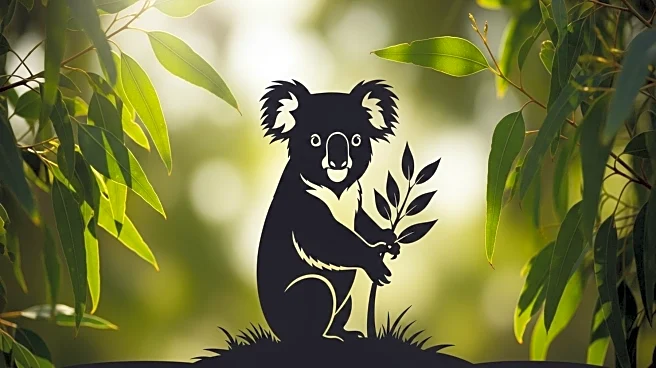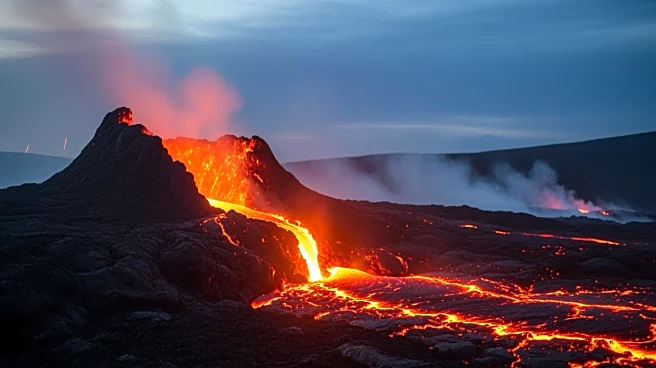What's Happening?
The University of the Sunshine Coast has developed a groundbreaking vaccine to protect Australia's endangered koalas from chlamydia, a disease causing significant mortality in wild populations. Approved by Australia's veterinary medicine regulator, this vaccine marks a major advancement in efforts to preserve the iconic marsupial. Led by Professor Peter Timms, the research team spent over a decade developing the vaccine, which is designed to be administered in a single dose without the need for a booster. This innovation aims to reduce the spread of chlamydia, which accounts for up to half of koala deaths in some colonies. Until now, antibiotics were the primary treatment, but they often disrupted koalas' digestion of eucalyptus leaves, their sole food source, leading to starvation. The vaccine has been trialed on hundreds of koalas, showing a reduction in symptoms and mortality by at least 65%.
Why It's Important?
The approval of this vaccine is crucial for the conservation of koalas, a species facing extinction due to high infection rates in some populations. By reducing the impact of chlamydia, the vaccine offers a lifeline to koalas, helping to maintain ecological balance in Australia's unique environments. The vaccine's single-dose administration is particularly beneficial for wildlife management, minimizing handling stress and logistical challenges. This initiative not only aids in koala conservation but also serves as a model for similar efforts worldwide, emphasizing the importance of innovative solutions in wildlife preservation.
What's Next?
The next steps involve sourcing major funding and donations to enable the national rollout of the vaccine for at-risk koala populations. Continued research and refinement of the vaccine are necessary to ensure its long-term success. The University of the Sunshine Coast plans to collaborate with partners to expand the vaccine's reach and effectiveness, aiming to safeguard koalas and contribute to broader conservation efforts.
Beyond the Headlines
The development of this vaccine highlights the intersection of scientific research and compassionate wildlife care. It underscores the importance of addressing broader threats to koalas, such as habitat loss, while raising awareness of conservation challenges. The vaccine represents a significant step in bridging the gap between discovery and real-world application, offering hope for endangered species and inspiring similar initiatives globally.








